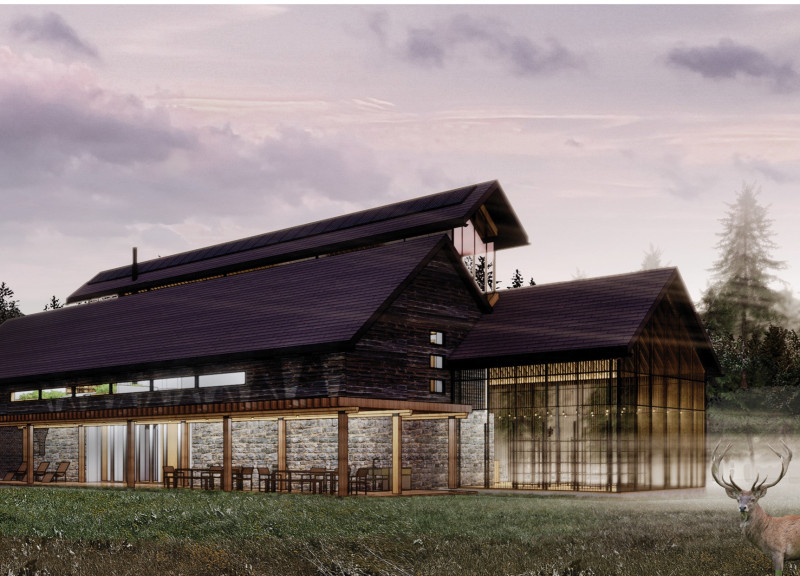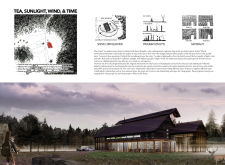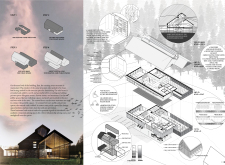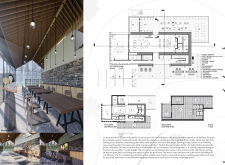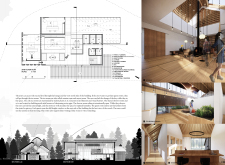5 key facts about this project
The Tea Maker's Guest House is located in a wooded area, designed to provide a peaceful retreat for guests. The focus of the design is on tea-making and the ways it can connect people to nature. By emphasizing elements such as light, wind, and time, the house creates a setting that encourages relaxation and social interaction among visitors.
Design Concept and Functionality
The design makes use of an existing stone structure that adds character and context to the site. By keeping this stone, the design respects the local landscape and reduces the environmental impact of constructing new materials. Each part of the guest house serves a specific function, including private guest rooms, communal workspaces, and dining areas. The layout is thoughtfully arranged to enhance the experience and enjoyment of the natural surroundings.
Spatial Organization
Inside the guest house, different areas are divided into private and public spaces. Guest rooms are designed to provide privacy, while open areas invite people to gather and socialize. The arrangement allows for good airflow and creates visual connections throughout the house. Guests can enjoy views of the woods from various vantage points, helping them feel more in touch with nature.
Workshop and Community Engagement
One key aspect of the design is the tea workshop. This space includes distinct areas for displaying items, making tea, and drying and packaging the product. By organizing these functions, the design promotes learning and collaboration among guests. The workshop fosters a sense of community by allowing individuals to come together, share knowledge, and experience the art of tea-making.
Guest Room Design and Accessibility
Each guest room features large windows facing east that provide ample morning light and scenic views of the surroundings. This connection to the outside enhances the overall experience, encouraging moments of reflection or inspiration. The design also considers accessibility, making sure that the ground floor is welcoming for wheelchair users.
The entrance includes a porch that transitions between the indoors and outdoors, serving as a dining area for enjoying meals outside. This space allows guests to truly immerse themselves in the natural environment.


